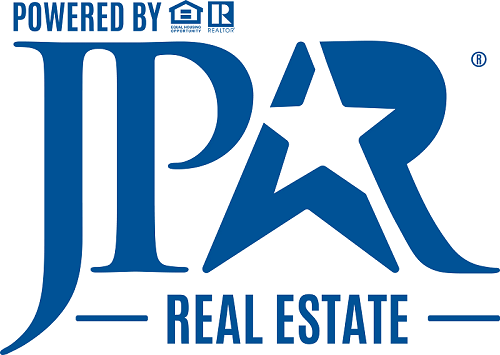Costs of Listing With An Agent in Texas

Introduction
If you’ve come to this page, you’re likely exploring the idea of selling your house in Texas, but you’re concerned about the costs involved when working with a real estate agent. Perhaps you’ve heard about the commission fees, the closing costs, and other expenses that could take a significant chunk out of your sale price. It’s understandable to want to be fully informed before you make such a big decision. You may be wondering if listing with an agent is truly worth the investment or if there’s a better, more cost-effective option. You’re likely looking for transparency—clear, concrete numbers that show exactly what you’ll be expected to pay, and if it’s truly worth it in the end. More importantly, you want to know if selling your home to a cash buyer might save you from these costs and provide a faster, simpler solution. In this blog, we’ll walk you through the typical costs of listing with an agent in Texas, explaining the fees, the fine print, and how these might stack up against other options, such as selling your home for cash.
Costs of Listing With An Agent in Texas
When most homeowners consider selling their property, they think of the traditional route: hiring a real estate agent, listing the house on the market, and waiting for buyers to make an offer. However, what’s often overlooked are the many hidden costs that come with this process. While an agent can help you sell your home for top dollar, the expenses associated with listing can sometimes be more than expected. Let’s break down exactly what those costs are, so you can make an informed decision.
1. Agent’s Commission Fees: A Major Expense
One of the biggest costs when selling your home through an agent in Texas is the commission fee. In Texas, the standard commission fee is typically around 6% of the sale price. This commission is often split between the seller’s agent and the buyer’s agent. For example, if you sell your home for $250,000, the total commission fee would be $15,000.
This might seem like a steep price to pay for an agent’s services, but it covers their efforts in marketing your property, handling negotiations, and guiding you through the paperwork. However, it’s essential to note that this is a percentage-based fee, meaning the more your home sells for, the higher the commission will be.
Key Takeaway: If you’re not comfortable with this significant expense, you may want to explore alternative options, such as selling your house for cash to a real estate investor. Selling for cash can eliminate these agent commissions, saving you thousands of dollars in the process.
To learn more about how closing costs affect the sale of your home, check out our detailed page on What are Closing Costs Exactly in Texas?.
2. Home Repairs and Renovations: A Hidden Expense
Another often underestimated cost is the expense of repairing and renovating your home before listing it. Homes that are in less-than-perfect condition may require repairs to attract buyers and sell for a higher price. In Texas, the typical costs of pre-listing repairs can add up quickly, and some common improvements include:
- New Paint: Freshly painting rooms or the entire house can cost anywhere from $1,000 to $4,000, depending on the size of the home and the quality of paint.
- Fixing Structural Issues: More significant repairs, such as fixing a leaky roof, repairing plumbing issues, or addressing foundation problems, can cost $5,000 to $10,000 or more.
Even homes in relatively good condition may require minor repairs or upgrades to make them market-ready. Sellers who fail to address these issues might have a harder time attracting buyers or could receive lower offers.
Key Takeaway: If you’re not interested in sinking money into repairs or renovations, selling your house as-is to a cash buyer could be a better choice. Cash buyers typically buy properties in any condition, so you don’t have to worry about fixing things up before selling.
For more information on how selling as-is could benefit you, visit our page on What It REALLY Costs to Sell Your Home in Frisco, TX.
3. Closing Costs: Fees That Add Up
Closing costs are another factor that can eat into your profit when selling a home in Texas. These costs are typically around 2% to 4% of the home’s sale price and can include:
- Title Insurance: In Texas, the seller typically covers the cost of title insurance, which can range from $1,000 to $2,000.
- Escrow Fees: Fees for using an escrow service can range from $500 to $2,000, depending on the size of the transaction.
- Attorney Fees: While not always required, some transactions may involve attorney fees, which can vary depending on your situation.
- Transfer Taxes: The state of Texas charges a transfer tax on real estate transactions, which is typically $0.25 per $100 of the sale price.
If you’re selling a home for $250,000, you can expect closing costs to range from $5,000 to $10,000.
Key Takeaway: When selling to a real estate investor for cash, you can often avoid many of these closing costs, as cash sales can be faster and involve fewer fees.
4. Marketing and Advertising Costs: Getting Your Listing Seen
In order to attract potential buyers, your home needs to be seen by the right people. This means investing in marketing strategies such as professional photography, staging, and advertising. Here are some typical marketing expenses:
- Professional Photography: High-quality photos of your property can cost around $200 to $500.
- Staging: Home staging is another option to make your home more appealing, and it can cost anywhere from $1,000 to $5,000, depending on the level of staging required.
- Online Listings: While listing your home on major real estate websites like Zillow and Realtor.com is often free, some agents will charge additional fees for premium listings to ensure your property stands out.
While these marketing strategies can increase the likelihood of a successful sale, they are an additional cost that adds up over time.
Key Takeaway: With a cash sale, these marketing costs become irrelevant, as the buyer typically doesn’t need the same amount of advertising to make an offer.
5. Time on Market: The Financial Impact of Waiting
Another often overlooked cost is the potential financial impact of a property sitting on the market for too long. Homes that don’t sell quickly can result in:
- Carrying Costs: During the time your home is on the market, you’re still responsible for paying the mortgage, property taxes, and utilities. This can add up to hundreds or even thousands of dollars each month.
- Price Reductions: If your home sits on the market for too long, you may be forced to reduce the price to attract buyers. This could end up lowering your final sale price.
Key Takeaway: Selling your house quickly to a cash buyer can avoid these costs. Cash sales often close in a matter of days, eliminating the long waiting period and reducing the financial burden of holding onto a property.
Conclusion: Is Listing with an Agent the Best Option?
When you weigh the costs of listing with a real estate agent, it becomes clear that the traditional route may not always be the most cost-effective option. While selling with an agent can result in a higher sale price, the associated costs—commission fees, repairs, closing costs, and marketing expenses—can significantly cut into your profits.
In contrast, selling your home for cash to Gravitas Property Group can help you avoid these costs and get a fair offer without the hassle. If you want to sell your house quickly, without spending money on repairs or waiting for months, a cash sale with Gravitas Property Group might be the best option for you. We offer fast, straightforward solutions with no hidden fees, commissions, or repairs required.
Ready to sell your house fast and avoid the high costs of listing with an agent? Contact Gravitas Property Group today and discover how we can make you a fair, cash offer and close the deal in days, not months!


